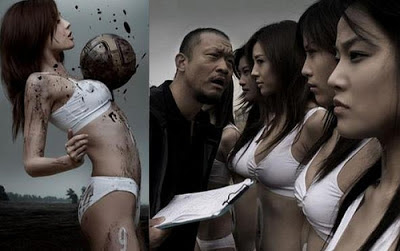It is now
for more than a month that we read about the horse meat scandal in Europe – or the
‘2013 meat adulteration scandal’, as it is referred to on its own Wikipedia page. Today we learned that the scope of the issue is by no means just linked
to some obscure Romanian supplier. High street brands such as Nestlé and Birds
Eye are now implicated and there is little hope that this will die down any
time soon.
Scandals
around food, and in particular meat production, are anything but new. The seminal
event here is still the BSE scandal nearly two decades ago. But there are some
remarkable differences with this latest one.
Initially, it is worth noting that the BSE scandal was around meat that was potentially harmful; BSE infected meat can cause Creutzfeld-Jakob disease which until 2009 has killed 166 in the UK (the then centre of the epidemic). Horsemeat as such is not harmful to health (though some contaminants have been discovered from medication horses were given to enhance performance, as most of the horsemeat seems to come from animals initially not destined to enter the food chain). In some countries horsemeat is considered a perfectly delicious and healthy (poor man’s) food staple.
The key
problem is that we eat food that we don’t understand anymore. We buy a ‘Beef
Lasagne’, but it is in fact a ‘Horse Lasagne’ (to varying degrees).
It is the
breach of trust that upsets people. And it unveils another, much larger issue.
The way we eat has been silently, but irreversibly, taken out of our control.
Europe is hit with this scandal just in the midst of wider problems. The Euro
crisis, and the fiscal problems of many European countries have created a
scenario where people suddenly feel their lives are exposed to forces which are
beyond their control. The horse meat scandal just adds to that fear, and it
also points to one pivotal actor, namely the multinational food company that
controls the supply of food.
“The 10 largest companies now control more than 15 per cent of all food sales – three quarters of which are made up of highly processed foods such as frozen pizza, burgers, biscuits and fizzy drinks.”
This quote
from The Independent newspaper highlights the core issue. The way we eat is now
largely controlled by private corporations. The horse meat scandal just
highlights the fact that private, profit oriented actors impact our lives
beyond any individual control.
From a CSR
perspective one could argue that the food industry has been overlooked for
quite some time. Yes there were a number of movies about the topic, most
notably ‘Supersize Me’, ‘Fast Food Nation’ and Food Inc.. A big issue has been obesity
and how food companies contribute to this epidemic. But by and large, it were
oil companies, tobacco companies or banks, which have been targeted recently
here.
There are
some interesting studies out – conspicuously authored by scholars in medical
schools. Rob Moodie of Melbourne University or Kellie Brownell of Yale have put
forward a very powerful argument: that food companies pursue exactly the same
strategy as tobacco companies did three decades ago.
This stuff
is worth noting – without going into too much detail in this blog. Especially
Brownell in his analysis does not cast a very favorable light on CSR – as practiced
by these companies. There is ample ground to argue that the food industry –
even without considering the ongoing horse meat scandal – is one of the most
irresponsible industries currently around. The reason is not that they struggle
with the usual problems of supply chain issues (such as slavery in cocoa
supply) or advertising or – you name it.
Food
companies shape the way we live. In particular, it is conspicuous that the
current scandal evolves around meat. It is just a plain fact that today we
consume too much of it. You do not need to be a vegetarian or vegan to say
this. Meat is a precious commodity, providing pivotal nutrients to humans,
based on the death of other sentient beings. Traditionally, humans have always been
aware of this special status of meat consumption. Just think of the rituals
around meat consumption in many of the world religions – be it Judaism with its
sacrificial cults or Islam with it's stipulation of ‘Halal’ rules. And even in a secular
world some of these traditions have survived until today. I am writing this
blog from Istanbul, where my local butcher has a webcam to the farm where the
meat is sourced up on a screen in the shop. You cannot buy minced meat (the
core issue of the horse meat scandal) in most Turkish butcheries; you have to
pick a piece of meat in the counter and than it gets minced in front of your
eyes – so no doubt about what you are eating. And: meat is expensive in Turkey. No $2 Lasagne here...
Which points
to the general issue. Our food is no longer provided by local butchers, greengrocers,
fishmongers or bakeries. We buy it from multinational brands. The way they do
their job is one problem. This is what the current scandal is about. The other
problem though is why we buy ready made meals, processed food, trans-fat
infested snacks in the first place. It is an element of our lifestyle, where
only little time is available for us to actually cook our own food.
Food
production is the next big CSR issue. We need more research, more critical
investigation, more clout behind this issue.
DM
Photo by Gene Hunt, reproduced under the Creative Commons license.


